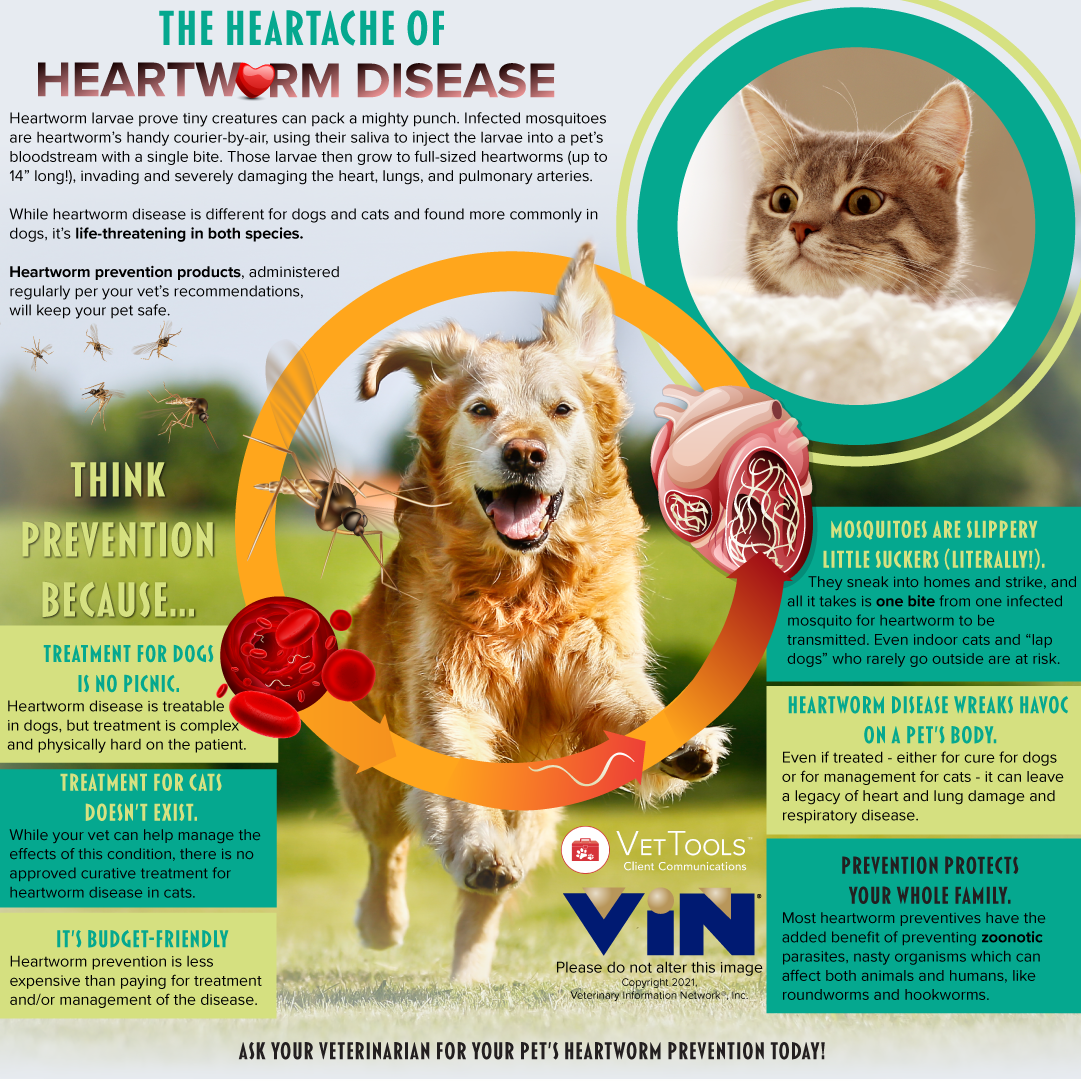Whether your pet is the rugged outdoorsy type, a chic urban explorer, or a happy homebody, pesky parasites are just waiting to sneak onto their safari for their favorite feast - PETS! |
 |
| |
 |
| Call us at (203) 869-0534 today! |
| |
 |

Fleas may be the first thing you picture when conjuring the classic pet parasite in your head (the matinee idols of parasites!). Everyone knows flea bites can be itchy and irritating, but fleas are much more than an uncomfortable nuisance - they can cause serious health issues and even death. |
 |
- Fleas bite animals in order to get themselves a blood meal, and blood loss can lead to life-threatening anemia. Younger and smaller animals are especially at risk.
- Severe itchiness, hair loss, even skin infections can stem from flea bites. Determined pets can chew and lick an itchy spot raw and sore in minutes.
- Fleas can pack a double whammy of awfulness by transmitting tapeworms and Bartonella, a bacterium responsible for several diseases affecting dogs, cats, and humans.
Flea Fact: Only pets who are actually allergic to flea bites will itch from their fleas, so don't assume your pet is in the clear if you don't see them scratching.
Click here to learn more about fleas. |
 |
 |
 When it comes to disease, ticks like to share the wealth -- and not just with pets, but with people, too. Ticks are equal opportunity feeders who prefer mammals, so with pets and their people sharing close living space, ticks on your pet often ultimately means ticks on you, too (shudder!). When it comes to disease, ticks like to share the wealth -- and not just with pets, but with people, too. Ticks are equal opportunity feeders who prefer mammals, so with pets and their people sharing close living space, ticks on your pet often ultimately means ticks on you, too (shudder!). |
- Lyme disease, Ehrlichia, and Anaplasmosis are just a few of the nasty diseases ticks carry and spread to both pets and their humans.
- Tick Paralysis is a harrowing experience for pets and their humans, with neurotoxins in the saliva of certain species of female ticks causing paralysis in bitten pets. Fortunately, removing the tick(s) and supportive veterinary care will usually solve the problem if caught early enough, but far better to avoid the experience altogether with a tick prevention program.
Tick Tip: Ticks are impressive reproducers. Some species lay 100 eggs at a time while others can lay 3,000 to 6,000 per batch. Talk about fertile little buggers!
Click here to learn more about ticks. |
 |

Like fleas and ticks, intestinal parasites also pose significant threats to just about everyone in the household, furry and not. These types of parasites are called zoonotic. Children especially are at risk from zoonotic parasites, so a good parasite prevention program will do double duty for pets and kids alike. |
 |
- Roundworms are the Terminators of the intestinal parasite world, able to survive for years in contaminated soil. They cause vomiting and diarrhea in infected pets, and alarmingly, can migrate to the eye in infected humans and cause blindness.
- Hookworms are named for (brace yourselves) their hook-shaped mouthparts, which they use to attach to the intestinal wall, where they feed on their host's blood. Potentially deadly in puppies and kittens, they typically cause a condition called cutaneous larva migrans in infected humans.
Worm Wisdom: Fortunately, many veterinarian-recommended heartworm preventatives also treat and control hookworms, roundworms, and other zoonotic parasites. This means protecting your pet from heartworms can also mean protecting your entire family (you parasite-fighting superhero, you!).
Click here to learn more about roundworms and hookworms. |
 |
 |
 Heartworm disease is something veterinary professionals truly hate to see. With a variety of safe and effective heartworm prevention products available, it's very easy to prevent this disease which is deadly for both dogs and cats. The same can't be said for treatment once infected. Heartworm disease is something veterinary professionals truly hate to see. With a variety of safe and effective heartworm prevention products available, it's very easy to prevent this disease which is deadly for both dogs and cats. The same can't be said for treatment once infected. |
- Mosquitoes act as heartworm larvae's own private couriers, picking them up from one infected animal and eventually passing them on to the others they may meet (and eat) via their saliva. Those larvae then migrate through the pet's bloodstream as they grow, invading and severely damaging the heart, lungs, and pulmonary arteries.
- Dogs can be treated for heartworm, but treatment is difficult on both dog and owner, requiring extended periods of rest and activity restriction (as in NO fetch, Fido!). Cats cannot be cured of heartworm infection. Lifelong medical management of the resulting conditions is the best we can offer.
Heartworm Hint: Because heartworm disease is so dangerous to pets and so difficult to treat and/or manage, preventing it in the first place is the best path.
Click here to learn more about heartworm disease in dogs.
Click here to learn more about heartworm disease in cats. |
 |

 |

Indoor pets, especially cats, can get overlooked when it comes to parasite prevention. While it would be helpful if parasites stuck to the great outdoors, they go where the food is and are skilled at hitchhiking and sneaking their way indoors. You could even say they put the "rude" in "intruder"! |
 |
 |
Happily, protecting your pet from parasites is easier and safer than ever. We have everything you need to keep your pet's jungle safe and ready for exploring! From parasite testing to providing the best parasite prevention plan for your pet's needs and your lifestyle, we've got you covered. Click here or call us at (203) 869-0534 to order parasite prevention for your pet today.
Sincerely,
Your friends at Greenwich Animal Hospital |
 |
We won't let a pandemic get in the way of protecting your pet from parasites! You can take comfort knowing we have low or no-contact options available for getting your pet's parasite prevention to you. Ask us for more info! |
|







